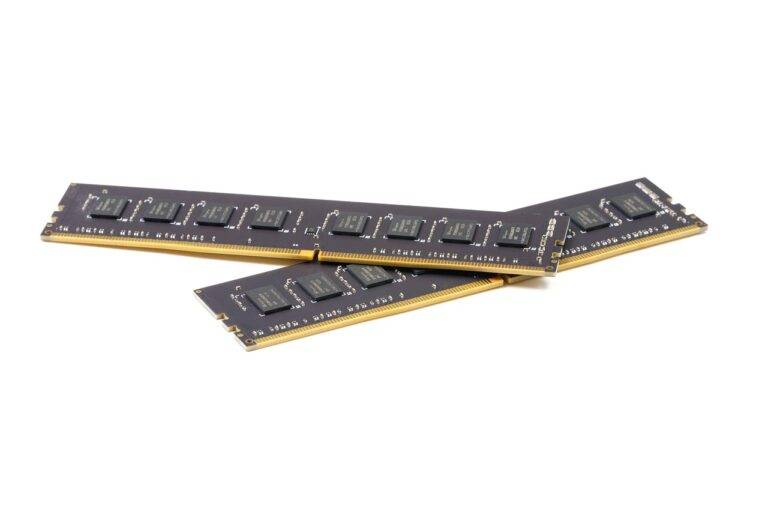Exploring the Future of Quantum Computing Applications
Welcome to the exciting world of quantum computing applications! Quantum computing is a cutting-edge technology that has the potential to revolutionize industries, solve complex problems at an unprecedented speed, and unlock new possibilities for innovation. In this article, we will explore the future of quantum computing applications, from quantum cryptography to quantum machine learning, and everything in between.
1. What is Quantum Computing?
Before diving into the future of quantum computing applications, let’s first understand what quantum computing is all about. Quantum computing harnesses the principles of quantum mechanics to process information in a fundamentally different way than classical computers. While classical computers use bits as the basic unit of information, quantum computers use quantum bits, or qubits, which can exist in multiple states at the same time, thanks to a phenomenon known as superposition.
2. Quantum Cryptography
One of the most promising applications of quantum computing is quantum cryptography. Traditional encryption methods can be vulnerable to attacks from quantum computers, which can break current encryption algorithms with ease. Quantum cryptography offers a secure way to protect sensitive information by leveraging the principles of quantum mechanics, such as quantum key distribution (QKD) and quantum entanglement.
3. Quantum Simulation
Another exciting application of quantum computing is quantum simulation. Quantum computers can simulate complex quantum systems that are practically impossible for classical computers to model accurately. This capability has implications for various fields, such as chemistry, physics, and materials science, where quantum effects play a significant role.
4. Quantum Machine Learning
Machine learning is a rapidly growing field that has the potential to benefit greatly from quantum computing. Quantum machine learning algorithms can process massive amounts of data and find patterns and insights at an accelerated pace compared to classical machine learning methods. Quantum machine learning holds promise for applications in fields such as finance, healthcare, and autonomous systems.
5. Quantum Optimization
Quantum computing also offers benefits for optimization problems, where the goal is to find the best solution from a vast number of possible options. Quantum optimization algorithms, such as the quantum annealing algorithm, can provide faster and more efficient solutions than classical optimization algorithms. This has implications for fields like logistics, finance, and supply chain management.
6. Quantum Sensing
Quantum sensing is another area where quantum computing applications are making strides. Quantum sensors can detect extremely small signals with high precision, enabling advancements in fields such as imaging, navigation, and environmental monitoring. Quantum computing is driving innovations in sensors that can outperform classical sensors in terms of sensitivity and accuracy.
7. Quantum Communication
Quantum communication is a field that aims to secure communication channels using quantum principles. Quantum key distribution (QKD) protocols leverage the properties of quantum mechanics to establish secure communication links that are resistant to eavesdropping. Quantum communication has implications for secure data transmission, financial transactions, and government communications.
8. Quantum Computing in Healthcare
The healthcare industry stands to benefit greatly from quantum computing applications. Quantum algorithms can analyze vast amounts of medical data, optimize treatment plans, and accelerate drug discovery processes. Quantum computing has the potential to revolutionize personalized medicine, genomics, and healthcare analytics in the coming years.
9. Quantum Computing in Finance
Financial institutions are increasingly exploring the use of quantum computing for complex financial modeling, risk analysis, and portfolio optimization. Quantum algorithms can perform advanced calculations at a speed unmatched by classical computers, enabling faster decision-making and more accurate predictions in the financial sector. Quantum computing is poised to transform the way financial services are delivered and managed.
10. Quantum Computing in Aerospace
The aerospace industry is another sector that can benefit from quantum computing applications. Quantum algorithms can optimize flight schedules, improve aircraft design, and enhance air traffic management systems. Quantum computing has the potential to revolutionize aerospace engineering, space exploration, and satellite communications in the future.
11. Quantum Computing in Energy
The energy sector is exploring the potential of quantum computing to address challenges related to energy production, distribution, and consumption. Quantum algorithms can optimize energy grids, predict energy demand, and improve renewable energy technologies. Quantum computing is driving innovations in clean energy solutions, resource management, and environmental sustainability.
12. Quantum Computing in Climate Modeling
Climate modeling is a complex and data-intensive process that can benefit from the computational power of quantum computing. Quantum algorithms can simulate climate change scenarios, analyze environmental data, and predict extreme weather events with greater accuracy. Quantum computing has the potential to advance climate science, inform policy decisions, and mitigate the impact of climate change on our planet.
13. Quantum Computing in Drug Discovery
Drug discovery is a time-consuming and costly process that can be streamlined with the help of quantum computing. Quantum algorithms can analyze chemical structures, predict drug interactions, and accelerate the development of new pharmaceuticals. Quantum computing has the potential to revolutionize drug discovery processes, improve patient outcomes, and drive innovation in the healthcare industry.
14. Quantum Computing in Artificial Intelligence
Artificial intelligence (AI) is a field that can benefit greatly from quantum computing applications. Quantum machine learning algorithms can enhance AI models, improve pattern recognition, and optimize decision-making processes. Quantum computing has the potential to advance AI technologies, create more intelligent systems, and unlock new capabilities in robotics, autonomous vehicles, and smart devices.
15. Quantum Computing in Materials Science
Materials science is a field that can benefit from the computational power of quantum computing. Quantum algorithms can model material properties, predict material behaviors, and design new materials with specific characteristics. Quantum computing has the potential to revolutionize materials research, accelerate material discovery, and drive innovations in electronics, catalysis, and energy storage.
16. Quantum Computing in Quantum Chemistry
Quantum chemistry is a field that is ideally suited for quantum computing applications. Quantum algorithms can simulate chemical reactions, optimize molecular structures, and predict chemical properties with high accuracy. Quantum computing has the potential to revolutionize the field of quantum chemistry, advance drug discovery efforts, and enable the development of new materials and chemicals.
17. Quantum Computing in Quantum Physics
Quantum physics is at the heart of quantum computing, making it a natural fit for quantum physics research and applications. Quantum algorithms can solve complex quantum physics problems, simulate quantum systems, and explore the mysteries of quantum mechanics. Quantum computing has the potential to revolutionize our understanding of the quantum world, accelerate scientific discoveries, and pave the way for new technologies and innovations.
18. Conclusion
As we look ahead to the future of quantum computing applications, it is clear that quantum computing has the potential to transform industries, solve complex problems, and drive innovation in ways we have never seen before. From quantum cryptography to quantum machine learning, quantum computing is poised to revolutionize fields such as healthcare, finance, aerospace, energy, climate modeling, drug discovery, artificial intelligence, materials science, quantum chemistry, quantum physics, and beyond.
FAQs
1. What is quantum computing?
Quantum computing is a cutting-edge technology that harnesses the principles of quantum mechanics to process information in a fundamentally different way than classical computers.
2. How does quantum cryptography work?
Quantum cryptography uses the principles of quantum mechanics, such as quantum key distribution (QKD) and quantum entanglement, to secure communication channels and protect sensitive information.
3. What are some potential applications of quantum computing?
Potential applications of quantum computing include quantum cryptography, quantum simulation, quantum machine learning, quantum optimization, quantum sensing, quantum communication, healthcare, finance, aerospace, energy, climate modeling, drug discovery, artificial intelligence, materials science, quantum chemistry, and quantum physics, among others.
4. How is quantum computing different from classical computing?
Quantum computing uses quantum bits, or qubits, which can exist in multiple states at the same time, thanks to a phenomenon known as superposition, while classical computers use bits as the basic unit of information.
5. What are some challenges facing quantum computing?
Challenges facing quantum computing include qubit stability, error correction, noise reduction, scalability, and quantum decoherence, among others.
6. What is the future of quantum computing?
The future of quantum computing is bright, with continued advancements in hardware, software, algorithms, applications, and research that will unlock new possibilities for innovation and drive quantum technologies forward in the coming years.





